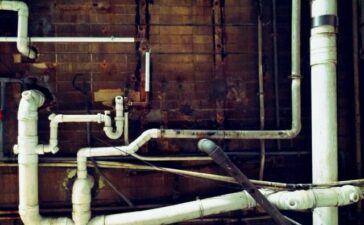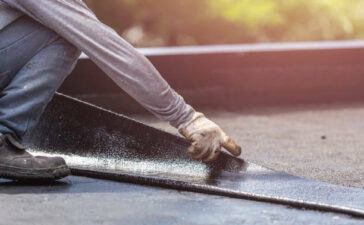A household depends on the air conditioning for optimum comfort, plus health and safety, especially when temperatures are extreme. Problems with the systems seem to occur when the weather is exceptionally harsh, and likely that’s because the unit is working at full capacity, although it isn’t the most convenient for those living in the home.
In order to keep these malfunctions to a minimum, it’s essential to take adequate care of the equipment with not only standard household upkeep but scheduling routine tune-ups at least once each year with a qualified, reputable A/C repair contractor like those at Best in the West, a leader in their industry. Repair contractors ensure optimum performance with preventive maintenance.
The idea is for the technician to find defects early before they can turn into significant problems and make the necessary corrections, plus the contractor will replace broken or worn parts and clean the system during the inspection.
Homeowners will receive guidance on adequate care and upkeep of the system from the provider that should be handled in between service calls. These maintenance tasks help ensure the equipment remains operational throughout an extreme season. But how do you know when it’s time to replace a unit? Let’s learn.
Signs Your A/C Needs Replacement Or Repairs
An air conditioner will typically give red flags when there’s a problem. If you practice adequate household care and upkeep plus employ annual service for the system, there should be a minimal chance you’ll need repairs throughout the season, unless the equipment is aged or something unexpected were to occur. See here for things you should know about your air conditioning.
When the repair contractor performs a tune-up, any potential defects are corrected along with having broken or worn parts replaced and the unit cleaned. The provider will instruct the homeowner on maintaining the system until it’s due for the next service.
It’s up to you as the homeowner to ensure all tasks are taken care of in order to avoid problems. It’s vital to pay attention for warning signs of possible issues. Some of these can include:
Warm air is coming from the unit
The air conditioning system is meant to cool the air in the house so you can be comfortable when the temperature outside becomes extreme. If the unit stops sending cold air into the space, there can be numerous issues with the system.
As a homeowner, one troubleshooting method is to check the air filter to ensure it’s not clogged, preventing adequate airflow from getting through. These need to be changed at least every 90 days or sooner, depending on the environment and usage.
If you’ve been spot on with changing your filter and this is not the problem, contact your HVAC professional for an adequate inspection to determine the defect and appropriate correction.
Thermostat not functioning properly
The central component of the air conditioning system is the thermostat that the unit depends on for communication in order to know the appropriate amount of air to send out into each room. It will also compile measurements to ensure adequate functionality.
If the equipment is running for brief stints and then shuts down or won’t power on at all, the thermostat could be incapable of recognizing whether or not the unit is operating.
Because the problem could be electrical in nature, it’s not something you should attempt to DIY; instead, reach out to a trained, knowledgeable HVAC specialist prepared for the intricacies involved with these systems.
Minimal air coming through the vents
When there is a weak airflow, a similar problem to warm air blowing through instead of cold, you’ll likely feel cool air, but it’s coming through meekly, disallowing it to circulate throughout the space.
The suggestion is that this can potentially be related to the compressor, or it could be an indication of a duct problem.
While neither issue is desirable, a compressor problem is significant and should be addressed with a repair contractor straight away. The most qualified provider with years in the industry will do an inspection to make an adequate determination and proceed with the necessary corrections.
Loud noises
Noises can become part of the backdrop for many homeowners thinking nothing of the sounds that go on in the household. Still, the A/C equipment will give off unusual sounds not typical of the day-to-day if there is a problem.
These need to be acknowledged, particularly if there is a scaping, squealing, or grinding. There could be a belt moving out of place, or potentially, a part is loosening or has broken free within the unit.
It’s essential to reach out to your HVAC professional as soon as you notice the issue to avoid more damage occurring from the problem.
Foul odors when the equipment comes on
The air conditioning system is not supposed to have a foul odor when the unit comes on. If there is a strong smell, it could indicate a burnt wire within the equipment.
A mustier smell could mean you have a mold living in the unit somewhere or perhaps inside the ductwork. Because there’s the potential for illness to occur, it’s essential to have an inspection with the repair contractor at the earliest possible convenience.
Final Thought
One thing to be mindful of when considering whether you should call for repairs or look into possibly replacing your equipment is the age of your current system. The suggestion is that HVAC units will retain their peak functionality for roughly 10 years before the need for replacement.
But that’s with regular preventive maintenance, plus optimum household upkeep along with average usage.
If you’re investing in no less than maybe four repairs over the course of merely a few months, that’s conducive to needing a replacement for greater cost efficiency, not to mention the likelihood of premium energy efficiency and savings on utility expenses.
These red flags will help you quickly recognize when there’s a problem with your equipment. When you notice the issue, it’s vital to reach out to a professional A/C contractor as soon as possible to avoid the damage from becoming worse and the cost from growing higher.
Your goal and that of the HVAC provider should be to provide superior care for the air conditioning system in order to achieve the most extensive lifespan.






